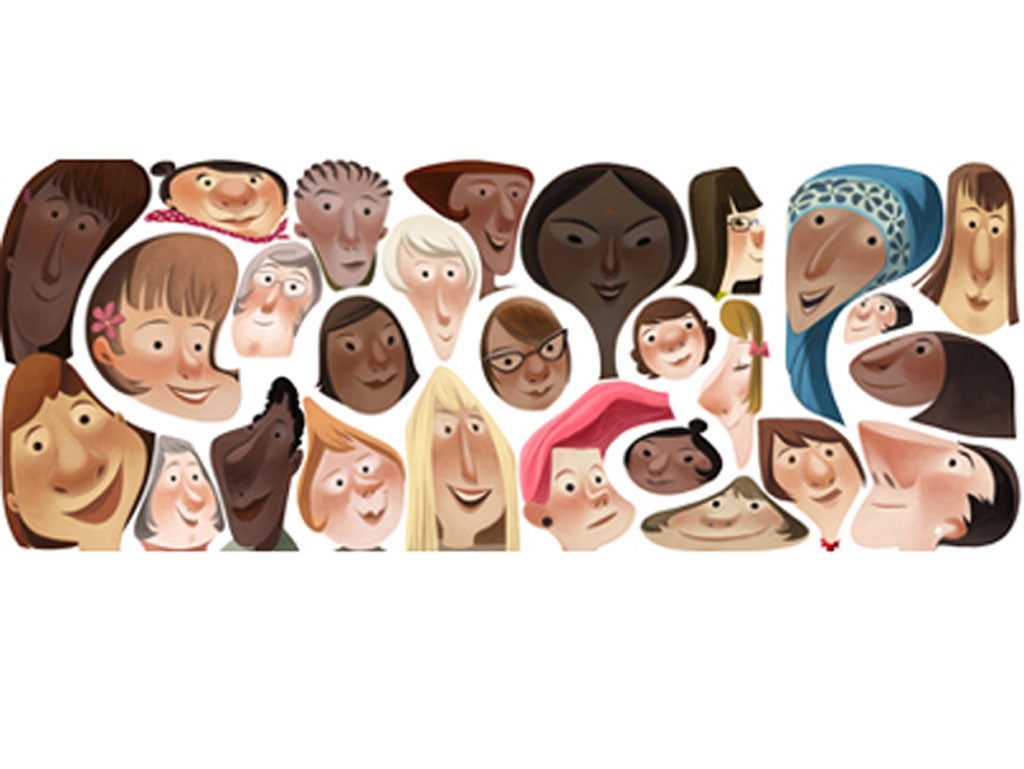It’s International Women’s Day, but where are the female role models?

International Women’s Week, this year falling between 4 and 8 March, is the opportunity to assess how far women have advanced in economic and political spheres, and how to continue furthering the progression of women all over the world.
Universities all over the country have created events related to International Women’s Week, with a portion of the student body involved. My university, the University of Kent, is no exception, with the Feminist Society and the Kent Union Women's Campaign holding their first event about women in education and why very few professors and senior management roles are held by women.
But before we begin to even tackle women’s advancement internationally, perhaps it is time to channel the attitudes ingrained within women in contemporary society? There seems to be lack of real female role models, with many instead choosing to emulate and imitate gyrating plastic pop idols. Images of half-naked women bombard magazine covers and lyrics boasting about ‘getting rich’ and ‘partying’ blaring in every restaurant, club and bar are saturated by the media and adopted by its passive consumers.
The absence of women in the political sphere is a further concern. According to figures shown by the Sex and Power 2013 report, the number of women in senior levels of civil service, government and education are steadily declining. The report states that what’s remarkable is that 'women are a majority (51 per cent) of the population, but power is concentrated in the hands of a minority… damaging the interests of both women and men as well as the country as a whole'.
The report shows a mere 22.5 per cent of MPs are female, with only 15.6 per cent of women holding high court judge roles and just five per cent of editor roles of national daily newspapers. One only needs to see David Cameron’s government, with many departments having no women employed at all, to realise the gender polarisation of our society. This is in dire contrast to the 80 women that held government posts during Tony Blair’s third term in power.
The absence of women is unfortunately not just reflected in the political sphere but in universities too. Students' annual elections are usually held around March, and candidates encourage the student body to vote. Perhaps due to fear of Internet abuse, sometimes even by other women, or simply as a result of not wanting to involve themselves, there are rarely any female candidates. A third-year female student has remarked that ‘despite being competent, the fear of being laughed at by my peers and classmates and scrawling over my election poster pictures was enough to put me off’.
Megan Wells, currently Women’s Officer for Kent Union, believes that women are "less likely to stand in Students’ Union elections because of the environment that they engender – mainly lack of knowledge about discrimination that women face. Women are more likely to stand for election if they ‘can see themselves’ in terms of gender on the leadership team. Students’ Unions are missing out on amazing leaders because no one is encouraging women to stand.”
There are however some success stories. Wells has been shortlisted by Labour Students’ for Student Union Activist of the year award, the only female candidate to be nominated for the accolade. Whether or not she will be successful, she has still participated in a male-dominated sphere and it is important to recognise progress and positives where they are found. Yet more needs to be done to actively involve women not only in the university sphere but also in government. Thus before we even begin to have an international women’s week, perhaps it is time to change the ingrained attitudes we have towards women not only internationally, but in our own society.
Layla Haidrani is a history student at University of Kent, Canterbury and an aspiring political journalist. She writes for The National Student and blogs for The Huffington Post. Follow her on Twitter here.
Subscribe to Independent Premium to bookmark this article
Want to bookmark your favourite articles and stories to read or reference later? Start your Independent Premium subscription today.

Join our commenting forum
Join thought-provoking conversations, follow other Independent readers and see their replies